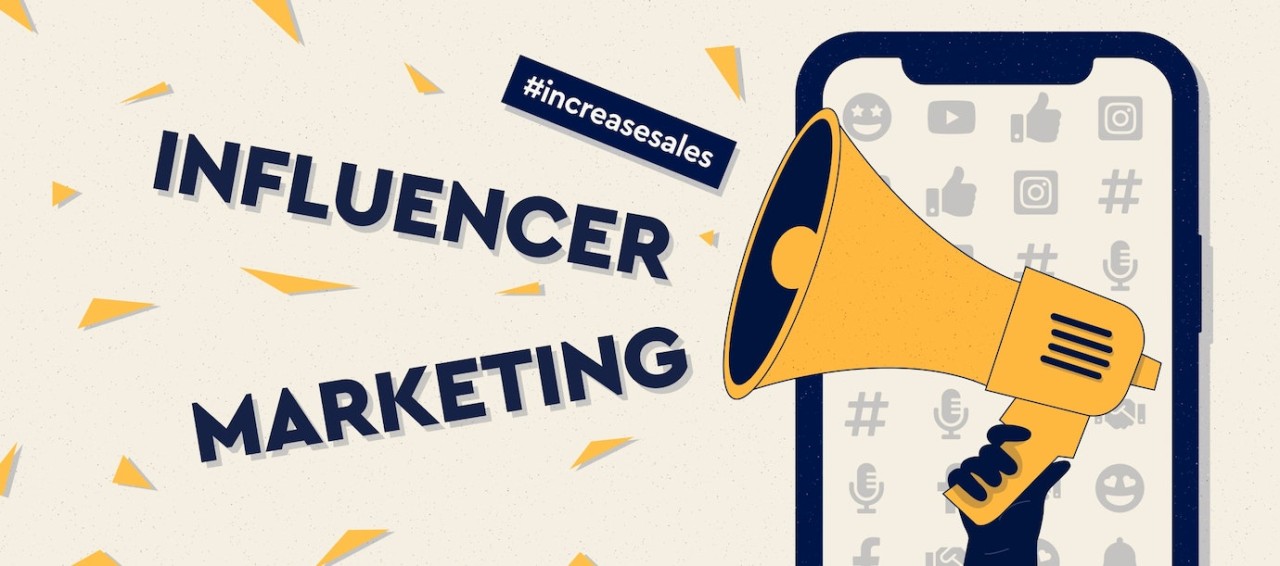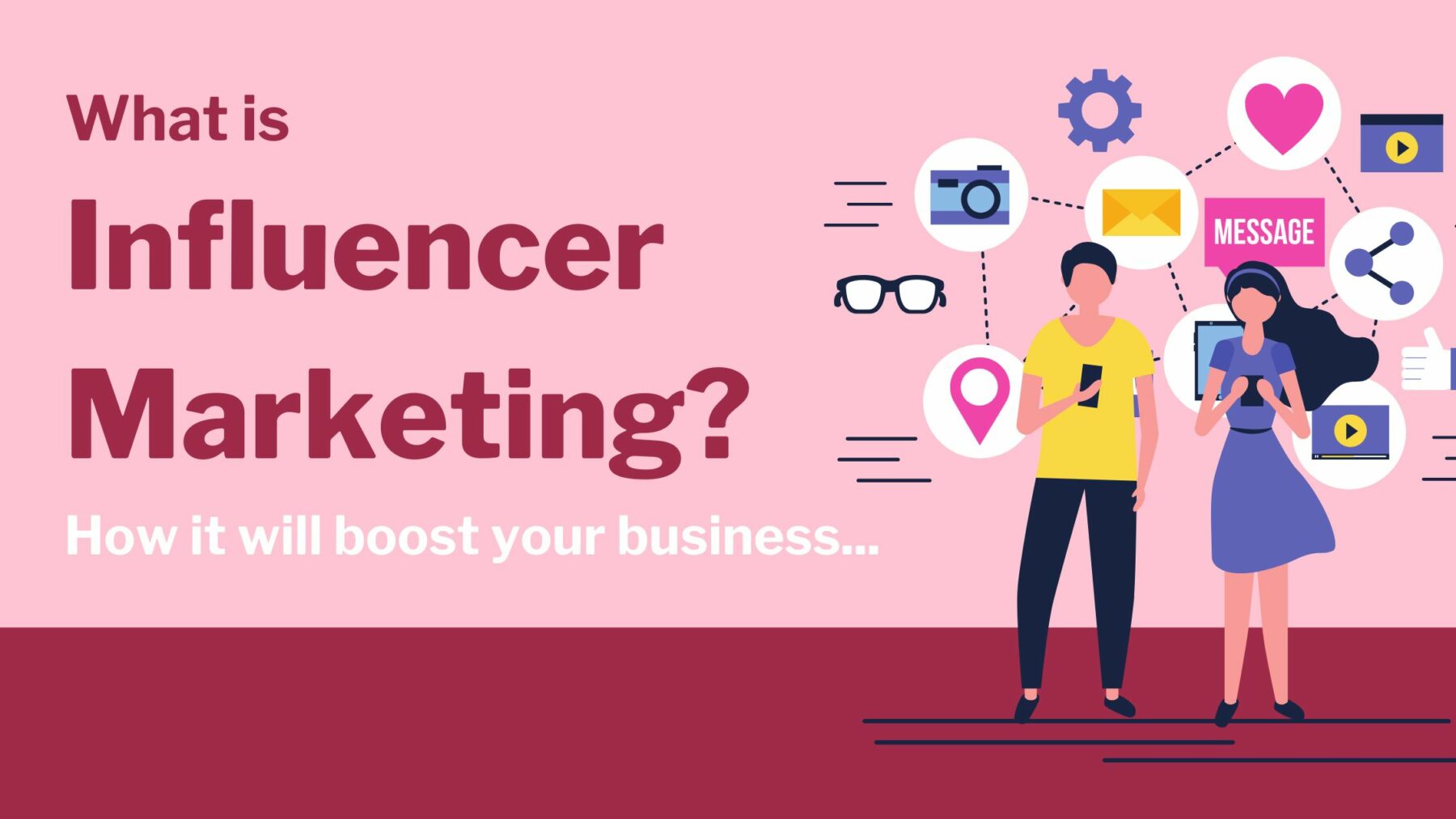In the fast-paced world of digital marketing, staying relevant and engaging with your audience is paramount. Enter what’s influencer marketing, a strategy that has taken the advertising landscape by storm. From Instagram to YouTube, influencers have become powerful voices shaping consumer choices.
What’s Influencer Marketing?

A. Definition of Influencer Marketing
Influencer marketing involves leveraging individuals with a substantial online following to promote your brand or product. It’s a dynamic strategy that taps into the trust influencers have built with their audience.
B. Importance in the Digital Age
With the rise of social media, traditional advertising has taken a back seat. Influencer marketing provides a direct channel to connect with consumers in a more authentic and relatable manner.
C. Brief Overview of the Article
This article will delve into the intricacies of influencer marketing, from understanding the types of influencers to crafting effective strategies for brand collaboration.
Understanding Influencers
A. Different Types of Influencers
1. Macro-Influencers
These influencers have a massive following, typically exceeding a million. They cater to a broad audience and are ideal for widespread brand visibility.
2. Micro-Influencers
With a more modest following, micro-influencers often have a niche focus. They offer a more personal connection with their audience, fostering genuine engagement.
3. Nano-Influencers
Nano-influencers have a smaller but highly engaged following within a specific community. They can offer hyper-targeted promotion.
B. Choosing the Right Influencer for Your Brand
Selecting the appropriate influencer involves considering your target audience, brand image, and the influencer’s authenticity. A harmonious fit ensures an effective collaboration.
Benefits of Influencer Marketing
A. Increased Brand Visibility
Influencers provide a platform to showcase your brand to a wider audience, boosting visibility and recognition.
B. Building Credibility and Trust
The authentic connection influencers have with their followers transfers to your brand, establishing credibility and trust.
C. Targeted Audience Engagement
Influencers allow for precise targeting, ensuring your message reaches the audience most likely to convert into customers.
Crafting an Effective Influencer Marketing Strategy
A. Setting Clear Objectives
Define your goals, whether it’s increased brand awareness, product sales, or community engagement.
B. Identifying the Target Audience
Understanding your audience helps in choosing influencers whose followers align with your customer demographics.
C. Collaborating with Influencers Authentically
Encourage influencers to incorporate your brand seamlessly into their content, ensuring authenticity and resonance.
Common Challenges
A. Authenticity Concerns
As influencers marketing grows, maintaining authenticity becomes crucial. Brands must choose influencers whose values align with theirs.
B. Measuring ROI
Quantifying the impact of influencers marketing can be challenging, but tracking metrics like engagement, conversions, and brand sentiment can provide insights.
C. Dealing with Negative Publicity
In the digital age, negative publicity spreads rapidly. Brands and influencers need a crisis management plan to handle unforeseen challenges.
Future Trends
A. Evolving Trends
From virtual reality experiences to interactive content, the future promises innovative ways for brands and influencers to connect.
B. Emerging Platforms
Keep an eye on emerging social media platforms where new influencers may rise to prominence.
Tips for Brands and Influencers
A. Building Mutually Beneficial Relationships
Establishing a strong, transparent relationship ensures a successful and enduring collaboration.
B. Navigating Legal and Ethical Boundaries
Understanding the legalities of influencer marketing protects both brands and influencers from potential pitfalls.
Conclusion
What’s Influencer marketing is not just a trend; it’s a fundamental shift in how brands connect with their audience.
For brands hesitant about diving into influencers marketing, the time is now. The benefits far outweigh the challenges, and the digital landscape is ripe for authentic brand-influencer partnerships.
Ready to amplify your brand through influencer marketing? Request a demo from AIM Technologies and discover the future of digital influence.
FAQs
Is influencer marketing only effective for certain industries?
- No, influencer marketing can be adapted to various industries, from fashion and tech to food and travel.
How do I measure the success of an influencer marketing campaign?
- Success metrics include engagement rates, conversion rates, and brand sentiment analysis.
What role do micro-influencers play in influencer marketing?
- Micro-influencers offer a more personal connection with their audience, fostering genuine engagement and trust.
Are there legal considerations when collaborating with influencers?
- Yes, brands and influencers should be aware of legal and ethical boundaries to avoid potential issues.
How can I find the right influencer for my brand?
- Consider your target audience, brand values, and the influencer’s authenticity when making a selection.


